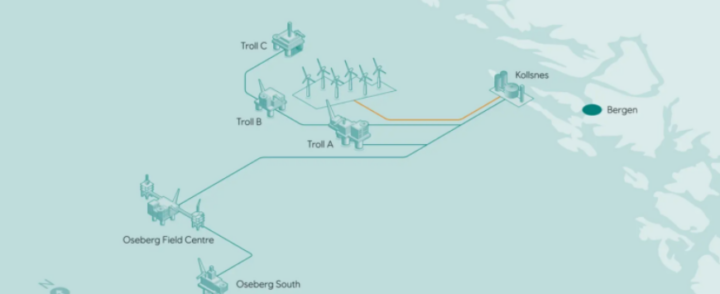Equinor Shelves Floating Wind Project Offshore Norway
Equinor will postpone a further development of the Trollvind offshore wind initiative off Norway indefinitely.
The company said the decision was based on several challenges facing the project, including technology availability, rising costs, and a strained timetable to deliver on the original concept. The authorities have been informed about the decision.
Equinor has previously announced reduced activity in the project due to technical, regulatory, and commercial challenges to the project.
As previously reported, Equinor and its partners in the Troll and Oseberg oil and gas fields in Norway: Petoro, TotalEnergies, Shell, and ConocoPhillips, were planning on building a 1 GW floating wind farm to power the two offshore fields.
The final investment decision was planned for the end of 2023, and the wind farm was scheduled to be commissioned in 2027.
The wind farm was expected to power both offshore fields and deliver excess electricity to Norway’s grid.
The partners had estimated that Trollvind could have delivered power for less than NOK 1/kWh (approximately EUR 0.1/kWh).
”We appreciate all the positive response towards Trollvind from politicians, suppliers, and authorities. Trollvind was a bold industrial plan to solve pressing issues concerning electrification of oil and gas installations, bringing much needed power to the Bergen-area, while accelerating floating offshore wind power in Norway. Unfortunately, we no longer see a way forward to deliver on our original concept of having an operational wind farm well before 2030,” said Siri Espedal Kindem, Equinor’s vice president of renewables Norway.
Behind the decision of putting Trollvind on hold are several challenges facing the broader offshore wind industry, the company said, adding that rising costs have challenged the original concept that Trollvind would not require any financial support and it is no longer a commercially sustainable project.
Furthermore, changes in the technical solutions due to preferred technology not being available has made the concept less viable.
Finally, time was always going to be a challenge with the proposed timeline, and despite all the big effort it has not been possible to mature Trollvind to the level needed to go forward at this time, Equinor said.
The company said that its ambition remains to lead in building an offshore wind industry in Norway.
Source: Offshorewind



